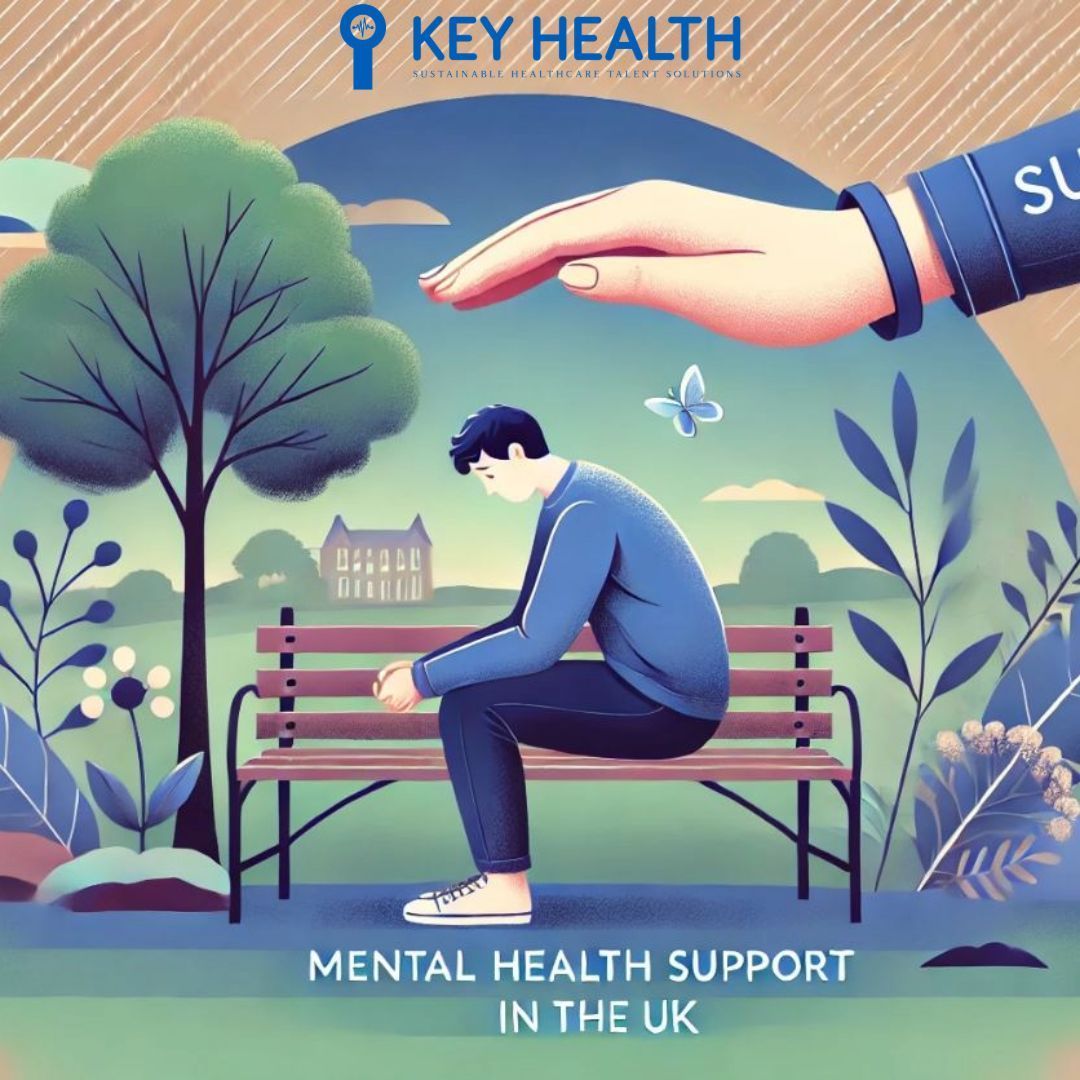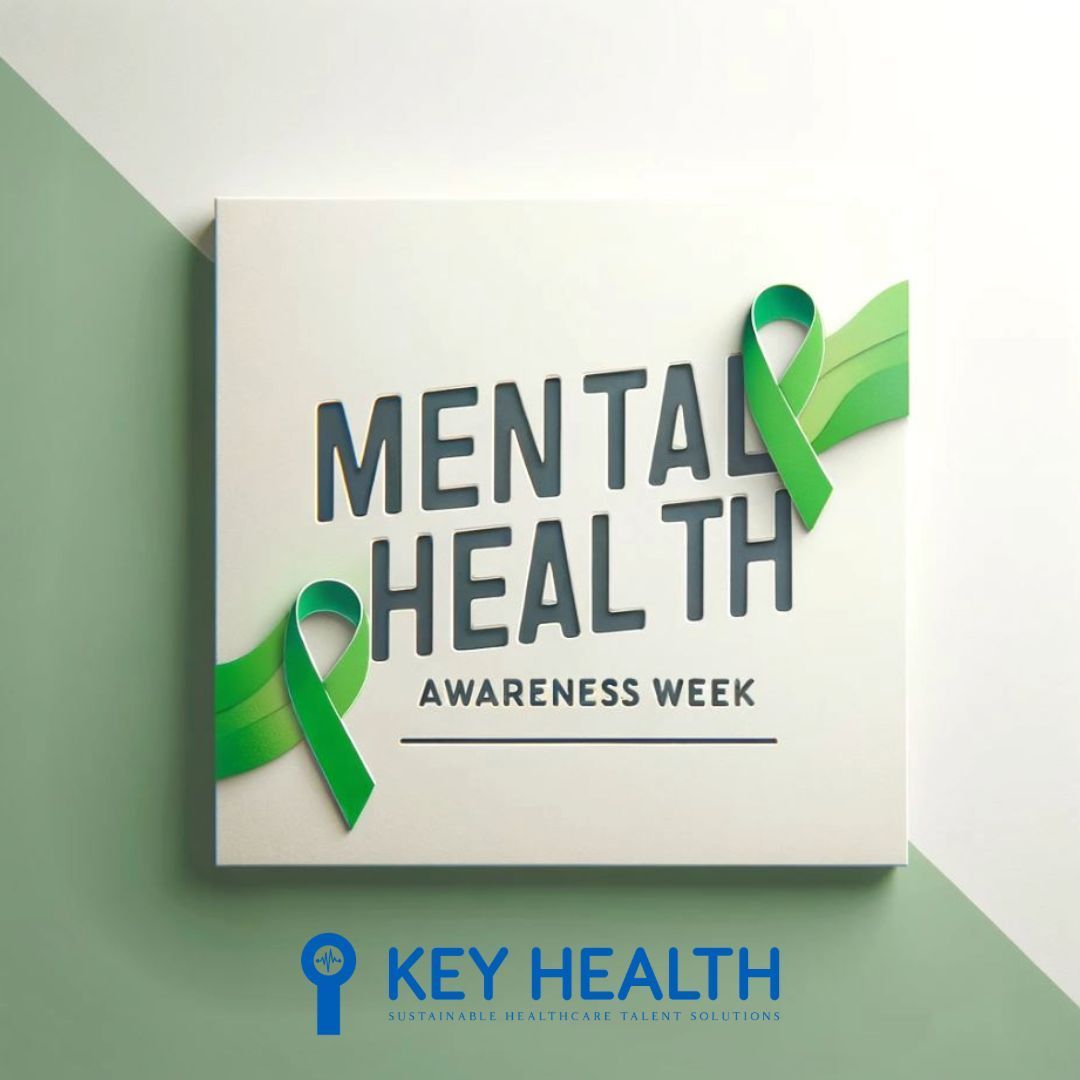Key Health Blog


In 2025, Bupa is set to offer a revolutionary genetic test that predicts the risk of common diseases like cardiovascular disease, diabetes, and certain cancers. Developed by Genomics, an Oxford University spinout, this test uses machine learning to generate genetic risk scores, independent of family history and clinical risk factors, enabling personalised, preventative healthcare. How It Works The test measures the impact of numerous genes, providing individuals with insights into their health risks that go beyond traditional methods. Dr. Alan W. Smith from Genomics says, "This test gives people a clearer understanding of how genetics influences their health." Why It Matters Genetic testing has the potential to identify health risks early. In the UK, it’s estimated that genetic factors contribute to 30% of diseases like diabetes and certain cancers. Bupa's test aims to help individuals make lifestyle changes and seek early interventions, improving long-term health outcomes. Dr. Emily Harper from Bupa adds, "By identifying high-risk individuals early, we can offer tailored advice to prevent serious health issues." Global Trends in Personalised Medicine The personalised medicine market is expected to reach USD 93.8 billion by 2026, with genetic testing playing a key role in this growth. As technology advances, the cost of genetic sequencing has decreased, making it accessible to more people worldwide. Looking Ahead Personalised medicine is the future of healthcare, offering proactive, tailored solutions based on an individual's genetic makeup. As genetic testing evolves, we move closer to a world where we can prevent diseases before they start. Dr. Harper concludes, "Genetic testing will be at the forefront of healthcare, allowing us to prevent disease before it occurs." Bupa’s new genetic test marks a significant step in personalised, preventative healthcare, enabling individuals to take control of their health and reduce the risk of serious conditions in the future. The future of medicine is here, and it’s tailored to you.

November marks Men’s Mental Health Awareness Month, a time dedicated to addressing the unique challenges men face in their mental well-being. While mental health struggles can affect anyone, men working in healthcare often encounter distinctive pressures that demand attention and understanding. The Silent Crisis Men’s mental health is frequently overlooked due to societal norms that discourage open dialogue about emotions. In the UK, men account for approximately 75% of all suicides, with suicide being the leading cause of death for men under 50. These figures are alarming, particularly for male healthcare workers who navigate high-stress environments daily. Healthcare professionals often work long hours, witness traumatic events, and carry the burden of caring for others. According to a British Medical Association survey, 44% of male doctors reported experiencing burnout, while male nurses are at higher risk of depression compared to their female counterparts. Dr. John Reeves, a consultant in emergency medicine, shared his perspective: “Healthcare is rewarding but relentless. Many of us struggle in silence, fearing stigma if we admit we’re not coping." Barriers to Seeking Help Despite the growing awareness of mental health, many men hesitate to seek help. This reluctance is often rooted in the perception that asking for support is a sign of weakness. For male healthcare workers, the pressure to “stay strong” can be even more pronounced. A study published in the Journal of Occupational Health Psychology revealed that male healthcare workers are less likely than their female colleagues to access employee assistance programmes. Instead, they often turn to unhealthy coping mechanisms such as excessive alcohol consumption, which only exacerbates their struggles. Building a Supportive Environment To create a healthier workplace for male healthcare professionals, organisations and colleagues can take proactive steps: Encourage Open Dialogue: Normalise conversations about mental health by sharing stories and providing platforms for discussion. Promote Resources: Ensure all staff are aware of mental health services available within the organisation. Foster Peer Support: Establish mentorship programmes where male employees can share experiences and support one another. Prioritise Work-Life Balance: Implement policies that reduce excessive workloads and provide adequate time off to recharge. Where to Seek Help If you or someone you know is struggling, it’s essential to reach out. Here are some trusted resources available in the UK: Samaritans: Call 116 123 (free, 24/7 helpline) Mind: Call 0300 123 3393 or text 86463 CALM (Campaign Against Living Miserably): Call 0800 58 58 58 or visit the webchat at www.thecalmzone.net NHS Employee Assistance Programme: Check with your workplace for access to counselling and support services. Final Thoughts Men’s Mental Health Awareness Month is an opportunity to challenge stigmas and support those who dedicate their lives to helping others. For male healthcare workers, prioritising mental health isn’t just important – it’s vital. By fostering open conversations and promoting accessible resources, we can build a culture where no one feels alone in their struggles. This November, let’s make mental health a priority and ensure that the men working tirelessly in our healthcare system receive the care and support they deserve.

The Role of Primary Care in the UK Healthcare System Primary care is the cornerstone of the UK healthcare system, serving as the first point of contact for patients and providing comprehensive, accessible, and community-based care. It plays a critical role in maintaining public health, managing chronic conditions, and preventing diseases. This blog explores the significance of primary care services, the challenges they face, and recent developments in the field. The Significance of Primary Care Services Primary care services encompass a range of healthcare providers, including general practitioners (GPs), nurses, pharmacists, and community health workers. These professionals deliver essential healthcare services, from routine check-ups and vaccinations to managing long-term conditions and coordinating specialist care. Key Functions of Primary Care: First Point of Contact: Primary care serves as the initial gateway for patients seeking medical attention. GPs handle everything from minor illnesses to complex health issues, ensuring that patients receive timely and appropriate care. Continuity of Care: Primary care providers maintain long-term relationships with patients, offering continuous and personalised care. This continuity helps in better understanding patients' medical histories and tailoring treatments to their specific needs. Preventative Care: Primary care plays a crucial role in disease prevention through regular screenings, immunisations, and lifestyle advice. This proactive approach helps reduce the incidence of serious health conditions. Management of Chronic Conditions: Primary care teams are essential in managing chronic diseases such as diabetes, hypertension, and asthma. They provide ongoing monitoring, medication management, and support for lifestyle changes. Coordination of Care: GPs coordinate patient care across different healthcare settings, ensuring seamless transitions between primary, secondary, and tertiary care. This coordination is vital for patient safety and optimal health outcomes. Challenges Faced by Primary Care Despite its critical role, primary care in the UK faces several challenges that impact its effectiveness and accessibility. Workforce Shortages The UK is currently experiencing a significant shortage of GPs and primary care staff. According to a report by the Royal College of General Practitioners (RCGP), there is a shortfall of nearly 6,000 GPs, and this gap is projected to widen. Dr. Helen Stokes-Lampard, former Chair of the RCGP, stated, "We urgently need more GPs, practice nurses, and other primary care staff to meet growing patient demand." Increasing Patient Demand The ageing population and rising prevalence of chronic diseases have led to increased demand for primary care services. The NHS reports that GP consultations have risen by 15% over the past five years, putting additional strain on already stretched resources. Funding Constraints Primary care funding has not kept pace with the rising demand. According to the British Medical Association (BMA), primary care received only 8.1% of the NHS budget in 2019/2020, despite handling 90% of patient contacts. This disparity limits the ability to expand services and invest in new technologies. Administrative Burden GPs face a growing administrative workload, reducing the time available for direct patient care. A survey by Pulse magazine found that GPs spend an average of 11 hours per week on administrative tasks, contributing to burnout and job dissatisfaction. Recent Developments in Primary Care In response to these challenges, several initiatives and developments are being implemented to strengthen primary care in the UK. Digital Transformation The adoption of digital technologies is revolutionising primary care. Telemedicine and online consultations have become more prevalent, especially during the COVID-19 pandemic. NHS Digital reported a 230% increase in the use of online consultations in 2020. These technologies enhance access to care, reduce wait times, and provide convenience for patients. Integrated Care Systems (ICS) The NHS is transitioning towards Integrated Care Systems (ICS), which aim to improve collaboration between healthcare providers across different sectors. ICSs focus on holistic and patient-centred care, ensuring that primary, secondary, and social care services work together seamlessly. Workforce Expansion and Training Efforts are underway to address workforce shortages through recruitment drives and enhanced training programmes. The NHS Long Term Plan includes commitments to increase the number of GPs, practice nurses, and other primary care professionals. Additionally, the introduction of new roles, such as physician associates and pharmacy technicians, helps to alleviate the pressure on GPs. Investment in Primary Care Infrastructure Recent government initiatives have pledged increased funding for primary care infrastructure. The GP Forward View outlines a £2.4 billion investment to improve GP premises, expand digital services, and enhance primary care facilities. Conclusion Primary care is the backbone of the UK healthcare system, providing essential services that are crucial for maintaining public health and managing long-term conditions. Despite facing significant challenges, recent developments and investments are poised to strengthen primary care services and ensure they remain accessible and effective for all patients. As Dr. Nikki Kanani, Medical Director for Primary Care at NHS England, aptly puts it, "Primary care is the foundation of the NHS. By investing in our workforce, embracing digital innovation, and fostering integrated care, we can build a resilient and sustainable primary care system for the future." By addressing the current challenges and leveraging new opportunities, the UK can continue to deliver high-quality primary care that meets the evolving needs of its population.

Depression is a common mental health condition that affects millions of people in the UK every year. Understanding the symptoms, knowing how to manage it, and being aware of where to seek help can make a significant difference in the lives of those affected. In this blog, we will discuss the signs of depression, various management strategies, and resources available for support. Recognising the Symptoms of Depression Depression manifests differently in each individual, but common symptoms include: Persistent Sadness or Low Mood: Feeling sad or down most of the time, often for weeks or months. Loss of Interest or Pleasure: Losing interest in activities previously enjoyed, including hobbies and socialising. Fatigue: Experiencing a constant lack of energy, even after restful sleep. Sleep Disturbances: Insomnia or excessive sleeping can both be symptoms of depression. Changes in Appetite: Significant weight loss or gain due to changes in eating habits. Difficulty Concentrating: Struggling to focus on tasks, make decisions, or remember details. Feelings of Worthlessness or Guilt: Excessive guilt or feelings of being a burden to others. Physical Symptoms: Unexplained aches and pains, such as headaches or muscle pain. Suicidal Thoughts: Thinking about death or suicide, which requires immediate professional intervention. According to the Mental Health Foundation, approximately one in six people in the UK will experience a mental health problem like depression in any given week. Managing Depression Managing depression often requires a multifaceted approach. Here are some effective strategies: Professional Help Therapy: Cognitive Behavioural Therapy (CBT) and other forms of psychotherapy can be highly effective. Dr. John Smith, a leading psychologist, notes, “Therapy provides a safe space for individuals to explore their feelings and develop coping mechanisms.” Medication: Antidepressants can help balance chemicals in the brain that affect mood and emotions. It's important to discuss this option with a GP to find the right medication and dosage. Lifestyle Changes Exercise: Regular physical activity can boost mood by increasing endorphins. A study by NHS England found that 45 minutes of moderate exercise, three times a week, can significantly reduce symptoms of depression. Healthy Diet: Eating a balanced diet rich in fruits, vegetables, and whole grains can improve overall mental health. Sleep Hygiene: Maintaining a regular sleep schedule and creating a restful sleeping environment can help alleviate some symptoms. Social Support Connecting with Others: Talking to friends and family members about feelings can provide comfort and support. Support Groups: Joining a support group, either in person or online, can help individuals feel less isolated. The charity Mind offers various support groups across the UK. Mindfulness and Relaxation Techniques Mindfulness: Practices such as meditation and deep breathing exercises can help manage stress and improve emotional regulation. “Mindfulness helps ground individuals in the present moment, reducing the impact of negative thoughts,” says Dr. Emily Brown, a mental health expert. Relaxation Techniques: Techniques like yoga, progressive muscle relaxation, and guided imagery can reduce tension and promote a sense of well-being. Where to Seek Help If you or someone you know is struggling with depression, it is crucial to seek help. Here are some resources in the UK: NHS Services: The NHS provides free mental health services, including talking therapies and crisis support. You can speak to your GP for a referral. Mind: This mental health charity offers advice, support, and information on where to get help. Visit their website at www.mind.org.uk or call their infoline at 0300 123 3393. Samaritans: For immediate support, Samaritans offer a 24/7 helpline. Call them at 116 123 or visit www.samaritans.org. YoungMinds: This organisation focuses on children and young people's mental health. They offer resources and a helpline for parents. Visit www.youngminds.org.uk for more information. Shout: A 24/7 crisis text service. Text "SHOUT" to 85258 for support. Conclusion Recognising and managing depression is a critical step towards improving mental health and well-being. By understanding the symptoms, adopting effective management strategies, and knowing where to seek help, individuals can take control of their mental health and find a path to recovery. Remember, reaching out for support is a sign of strength, not weakness, and there are numerous resources available to help you through this journey. If you or someone you know is experiencing symptoms of depression, don't hesitate to seek help. Together, we can create a supportive community that fosters mental health and well-being for everyone.

In the pursuit of happiness, many people set their sights on achieving specific goals, believing that once these are met, happiness will follow. However, as Eleanor Roosevelt wisely noted, "Happiness is not a goal; it is a by-product." This profound statement challenges the conventional notion of happiness as a destination and encourages us to view it as a natural outcome of how we live our lives. The Misconception of Happiness as a Goal In our fast-paced, achievement-oriented society, happiness can often be viewed as a prize that can be won through hard work, success, and the accumulation of material wealth. We set milestones such as getting a promotion, buying a new home, or finding the perfect partner, assuming these accomplishments will bring us lasting joy. However, this approach can lead to a never-ending cycle of striving and disillusionment, as each new goalpost shifts, leaving us perpetually chasing an elusive feeling. Psychological research supports this view, suggesting that while achieving goals can bring temporary satisfaction, it does not lead to sustained happiness. Dr. Sonja Lyubomirsky, a leading researcher in positive psychology, found that while external circumstances account for only about 10% of our happiness, 40% of our happiness is by our intentional activities and attitudes. This shows that how we approach life, rather than what we achieve, plays a crucial role in our overall sense of well-being. Embracing the Journey Roosevelt's quote encourages us to focus on the journey rather than the destination. By shifting our perspective, we can find joy in living rather than in the outcomes we achieve. This involves cultivating a mindset of gratitude, mindfulness, and engagement in everyday activities. When we immerse ourselves in the present moment and appreciate the small pleasures of daily life, we create a fertile ground for happiness to flourish. For instance, consider the act of pursuing a hobby or passion. Engaging in activities that we love not only brings immediate joy but also contributes to a deeper sense of fulfilment. Whether it is painting, gardening, or playing a musical instrument, these pursuits allow us to express ourselves and connect with our intrinsic interests, leading to happiness that appears naturally from within. Building Meaningful Relationships Another key aspect of finding happiness as a by-product lies in nurturing meaningful relationships. Human beings are inherently social creatures, and our connections with others significantly affect our well-being. Studies have shown that strong, supportive relationships are one of the most reliable predictors of happiness. Investing time and effort in building and supporting close relationships with family, friends, and community can lead to a profound sense of belonging and contentment. Acts of kindness, empathy, and genuine communication foster bonds that enrich our lives, making happiness a natural outcome of our interactions. Living with Purpose Living with a sense of purpose and meaning is another crucial factor. When we engage in activities that align with our values and contribute to something larger than ourselves, we experience a sense of fulfilment that transcends momentary pleasures. This could involve volunteering, mentoring, or pursuing a career that makes a positive impact on society. Victor Frankl, a renowned psychiatrist and Holocaust survivor, emphasised the importance of finding meaning in life. He believed that individuals who have a clear sense of purpose are better equipped to face life's challenges and find joy even in adversity. By focusing on meaningful pursuits, we create a life that resonates with our core values, allowing happiness to appear organically. Conclusion Eleanor Roosevelt's insight, "Happiness is not a goal; it is a by-product," invites us to reconsider our approach to finding joy. Rather than treating happiness as a destination, we should focus on living authentically, nurturing relationships, and engaging in meaningful activities. By doing so, we allow happiness to arise naturally from the way we live our lives, creating a lasting sense of well-being that enriches our existence. In embracing this perspective, we can free ourselves from the relentless pursuit of external achievements and instead cultivate a life where happiness is a natural and enduring by-product of our actions and attitudes.

Every year, the United Kingdom dedicates a week to honour the unsung heroes of our communities – the carers. Carers Week is an opportunity to raise awareness of the incredible work carers do, celebrate their dedication, and highlight the challenges they face. This year, let's take a moment to recognise and appreciate these extraordinary individuals who tirelessly support their loved ones. The Lifeline of Care: Who Are the Carers? Carers are individuals who provide unpaid care and support to a family member or friend who has a disability, illness, mental health condition, or is elderly. According to Carers UK, there are an estimated 6.5 million carers in the UK, making up a significant portion of the population. Without their unwavering support, many would struggle to manage their daily lives. The Hard Work and Dedication Caring is a demanding role that often requires a high level of commitment and sacrifice. The tasks can range from providing personal care, managing medications, and handling household chores to offering emotional support and companionship. Many carers juggle these responsibilities alongside their jobs and other family obligations. A study by Carers UK found that 72% of carers feel their role has a negative impact on their physical health, while 61% report it affecting their mental health. Despite these challenges, carers show remarkable resilience and dedication. Jane, a full-time carer for her elderly mother, shares her experience: "Caring for my mum is challenging, but it's also incredibly rewarding. Knowing that I can make a difference in her life gives me a sense of purpose and fulfilment." Celebrating Carers: A Community Effort Carers Week is not just about raising awareness; it's also about celebrating the carers themselves. Communities across the UK organise events, activities, and campaigns to show appreciation and offer support. From local councils to charities, various organisations come together to provide resources, advice, and a platform for carers to share their stories. This year's theme, "Making Caring Visible, Valued, and Supported," aims to ensure that carers are recognised for their contributions and have access to the support they need. It highlights the importance of visibility – ensuring that carers are not overlooked and their efforts are acknowledged. The Positive Impact of Support Support for carers can come in many forms, including respite care, financial assistance, and mental health services. Providing these resources can significantly improve carers' quality of life, allowing them to continue their vital work without feeling overwhelmed. Anna, who cares for her autistic son, emphasises the importance of support: "The support groups and respite care services have been a lifeline for me. They give me the chance to recharge and take care of myself, which in turn helps me to be a better carer for my son." Looking Forward: Building a Carer-Friendly Future As we celebrate Carers Week, it's crucial to continue advocating for better policies and support systems for carers. This includes pushing for more flexible working conditions, better financial aid, and improved healthcare services tailored to carers' needs. In conclusion, Carers Week is a time to shine a light on the incredible work carers do every day. Their dedication, hard work, and compassion are the backbone of our communities. Let's celebrate them, support them, and ensure they feel valued and recognised. To all the carers out there – thank you for your extraordinary efforts. Your work truly makes a difference.

In an increasingly fast-paced and stressful world, resilience is a crucial skill that helps us navigate life's challenges and maintain mental well-being. Building resilience involves developing a positive mindset, effective coping skills, and robust stress management techniques. This blog explores practical strategies to enhance resilience and strengthen mental health, supported by relevant statistics and expert quotes. Understanding Resilience Resilience is the ability to adapt and recover from adversity, trauma, or significant stress. It's not about avoiding difficulties but rather how we respond to them. According to the Mental Health Foundation, resilience can be built and strengthened over time, much like physical fitness. Strategies for Building Resilience 1. Cultivate Positive Thinking Positive thinking is a key component of resilience. It involves focusing on the good in any situation and maintaining a hopeful outlook. This doesn't mean ignoring problems but rather approaching them with a constructive mindset. Practice Gratitude: Keeping a gratitude journal and regularly noting things you're thankful for can shift your focus from what's going wrong to what's going right. Research by the University of Warwick found that practising gratitude can increase happiness and life satisfaction. Reframe Negative Thoughts: Challenge negative thoughts and reframe them in a more positive light. For instance, instead of thinking, "I can't do this," try, "This is challenging, but I can handle it." Clinical psychologist Dr. Paul Gilbert explains, "Developing a compassionate and optimistic mindset can significantly bolster your resilience and overall mental health." 2. Develop Effective Coping Skills Coping skills are techniques and strategies that help you manage stress and adversity. Effective coping can prevent stress from becoming overwhelming and enhance your ability to bounce back from setbacks. Problem-Solving: Break down problems into manageable parts and tackle them one step at a time. This methodical approach can make daunting challenges seem more achievable. Emotional Regulation: Learn to recognise and manage your emotions. Techniques such as deep breathing, mindfulness, and meditation can help you stay calm and composed under pressure. Seek Support: Don’t hesitate to reach out to friends, family, or mental health professionals for support. The NHS recommends talking to someone you trust as a crucial step in managing stress and building resilience. 3. Manage Stress Effectively Stress management is essential for maintaining mental health and building resilience. Chronic stress can take a significant toll on your mental and physical well-being. Exercise Regularly: Physical activity is a proven way to reduce stress and improve mood. The NHS recommends at least 150 minutes of moderate exercise per week. Maintain a Healthy Lifestyle: A balanced diet, adequate sleep, and avoiding excessive alcohol and caffeine can help your body cope better with stress. Practice Relaxation Techniques: Techniques such as yoga, progressive muscle relaxation, and guided imagery can reduce stress levels and promote a sense of calm. Dr. Rangan Chatterjee, a leading GP and author, states, "Incorporating simple stress management techniques into your daily routine can have a profound impact on your resilience and mental health." Statistics on Resilience and Mental Health Understanding the impact of resilience on mental health is supported by various studies and statistics: The Mental Health Foundation found that people with high resilience levels are 60% less likely to experience symptoms of anxiety and depression. A survey by the British Psychological Society revealed that 75% of adults believe that developing resilience skills should be a priority in schools and workplaces. Research published in the journal "Psychology and Aging" indicates that older adults with high resilience report better overall mental health and life satisfaction. Conclusion Building resilience is a dynamic process that involves cultivating a positive mindset, developing effective coping skills, and managing stress proactively. By implementing these strategies, you can enhance your mental health and better navigate life's inevitable challenges. As the saying goes, "It's not the load that breaks you down, it's the way you carry it." By strengthening your resilience, you can carry life's load with greater ease and emerge stronger from adversity. Remember, resilience is not an innate trait but a skill that can be developed with time and practice. Start today by integrating these strategies into your daily routine, and watch your resilience grow, along with your mental well-being.

Mental Health Awareness Week, held annually in the UK, shines a vital spotlight on mental health issues, encouraging us to foster a more open dialogue about mental wellbeing. This year, from the 13th to the 19th of May, the theme focuses on anxiety, a condition that affects millions across the nation. Understanding the Impact Anxiety disorders are among the most common mental health conditions in the UK. According to the Mental Health Foundation, an estimated 8.2 million people in the UK experience anxiety each year. Despite its prevalence, anxiety is often misunderstood and stigmatised, making awareness initiatives crucial. "We need to break the silence surrounding mental health issues and create a society where everyone feels safe to talk about their mental wellbeing," says Mark Rowland, CEO of the Mental Health Foundation. The Statistics One in four people in the UK will experience a mental health problem each year. One in six people report experiencing a common mental health problem (like anxiety and depression) in any given week in England. According to the Office for National Statistics, 19% of adults in Great Britain experienced some form of depression during the COVID-19 pandemic, double the pre-pandemic figures. Raising Awareness and Support Mental Health Awareness Week aims to reduce the stigma associated with mental health issues and provide support for those in need. The campaign encourages people to share their experiences and support each other. Various events, workshops, and online activities are organised to promote mental wellbeing and offer practical advice on managing anxiety. Personal Stories Sharing personal stories can have a profound impact on reducing stigma. Emily, a 29-year-old teacher from Manchester, shares her experience: "Living with anxiety has been a challenge, but speaking about it openly with friends and family has been incredibly liberating. Mental Health Awareness Week reminds us that we are not alone in our struggles." UK Helplines If you or someone you know is struggling with anxiety or other mental health issues, it’s crucial to seek help. Here are some UK-based helplines offering support: Samaritans: Available 24/7, Samaritans provide confidential support for people experiencing feelings of distress or despair. Call 116 123. Mind: This mental health charity offers information and advice. Call their Infoline at 0300 123 3393 or text 86463. Anxiety UK: Specialising in anxiety disorders, Anxiety UK offers support via their helpline at 03444 775 774. CALM (Campaign Against Living Miserably): Aimed at preventing male suicide, CALM offers support through their helpline at 0800 58 58 58. Shout: A 24/7 text service for anyone in crisis. Text 85258 to start a conversation with a trained volunteer. How You Can Help Mental Health Awareness Week encourages everyone to take part in raising awareness and supporting those affected by mental health issues. Here are a few ways you can get involved: Start a Conversation: Talking about mental health can help break the stigma. Share your own experiences and listen to others. Educate Yourself and Others: Learn more about anxiety and other mental health conditions. Use reliable sources and share this knowledge with your community. Participate in Events: Join local events or online workshops during Mental Health Awareness Week to show your support. Donate: Support mental health charities by donating or fundraising. Every contribution helps provide vital resources and support. Conclusion Mental Health Awareness Week is a pivotal time for the UK to come together and address the mental health crisis. By raising awareness, sharing experiences, and providing support, we can create a more compassionate and understanding society. Remember, it’s okay not to be okay, and help is always available. "The greatest weapon against stress is our ability to choose one thought over another." – William James For more information on Mental Health Awareness Week and how to get involved, visit the Mental Health Foundation website.

In the complex landscape of healthcare, the emphasis on patient safety and quality of care is paramount. As the UK continues to navigate through the aftermath of the COVID-19 pandemic, the focus on these areas has intensified. This blog explores the current state of patient safety and quality of care within the UK healthcare system, backed by recent statistics and expert insights. The Current Scenario Recent data from the NHS reveal that in the last year alone, there have been approximately 10,000 reported cases of patient safety incidents that could have or did lead to severe harm. These figures highlight the ongoing challenges in maintaining safety standards in a system under immense pressure. Dr. Lucy Williams, a healthcare policy expert at King's College London, notes, “The quality of care is fundamentally linked to patient safety standards. Our goal is always to minimise harm by adopting robust safety protocols and continuously improving care practices.” This sentiment is echoed across the healthcare industry as professionals strive for excellence in patient care. Strides in Technology and Training One of the brighter aspects of recent developments in UK healthcare is the incorporation of advanced technology to enhance patient safety. Innovations such as electronic health records (EHR) and AI-powered diagnostic tools have shown promise in reducing errors and improving patient outcomes. According to a study from the University of Cambridge, implementation of EHRs has been associated with a 30% reduction in patient safety incidents. Moreover, ongoing training and development for healthcare professionals remain a cornerstone of efforts to improve care quality. The NHS has ramped up its investment in training programmes, focusing on areas like emergency response, infection control, and patient-handling techniques. These initiatives are critical in equipping staff with the skills necessary to meet the high standards of care expected in UK hospitals. Policies and Practices The UK government and various health bodies have introduced several policies aimed at safeguarding patients and ensuring high-quality care. The Care Quality Commission (CQC) plays a crucial role in overseeing all health and social care services in England. Its rigorous inspection and regulation practices are designed to ensure that care providers meet essential standards of quality and safety. Additionally, the NHS Patient Safety Strategy, updated in 2021, outlines clear goals for reducing patient harm and enhancing care quality through a safety culture and more reliable safety systems. Challenges Ahead Despite these efforts, challenges remain. Funding constraints, staff shortages, and the rising demand for healthcare services continue to strain the system. These issues are particularly pronounced in areas like mental health and elderly care, where the complexities of patient needs require highly tailored care approaches. Moving Forward As we look to the future, the key to improving patient safety and care quality lies in a multi-faceted approach. This involves not only ongoing technological advancements and training but also ensuring sufficient funding and addressing workforce challenges. “Improving patient safety is an iterative process. Each step we take towards better technology, training, and policies leads us closer to the ultimate goal of no harm,” states Dr. Williams. This approach, combined with a transparent and accountable healthcare system, can drive significant improvements in patient safety and the overall quality of care in the UK. In conclusion, while there are significant challenges to overcome, the commitment to enhancing patient safety and care quality remains strong among UK healthcare providers. With continued focus and investment, the future of UK healthcare looks promising in its quest to provide safe, high-quality care to all patients.

In recent years, the understanding of anxiety and its pervasive impact on everyday life has deepened. As mental health awareness grows, so too does the toolkit for managing its symptoms. Among these tools are positive affirmations, simple yet powerful statements used to challenge and undermine negative thoughts and foster positive thinking. This article explores how positive affirmations can be an effective strategy against anxiety, supported by statistics and insights from mental health experts. The Prevalence of Anxiety Anxiety is one of the most common mental health disorders worldwide. According to the Mental Health Foundation, anxiety affects roughly 8 million adults in the UK, with women being twice as likely as men to be diagnosed with anxiety disorders. The COVID-19 pandemic has only exacerbated these figures, with the Office for National Statistics reporting significant increases in anxiety levels across various demographics. Understanding Positive Affirmations Positive affirmations are statements that are repeated to oneself, often in the face of challenging situations, to instil a sense of optimism and self-efficacy. They are designed to combat the negative and often automatic thoughts that can arise during anxious moments. Dr. Carmen Harra, a clinical psychologist, explains, “Affirmations are proven methods of self-improvement because of their ability to rewire our brains. Much like exercise, they raise the level of feel-good hormones and push our brains to form new clusters of positive thought.” How Affirmations Help 1. Counteracting Negative Thoughts Anxiety often brings a flood of unhelpfully negative thoughts that can overwhelm the mind. Affirmations serve as a tool to neutralise these thoughts and replace them with positive, constructive ones. A study published in the journal 'Social Cognitive and Affective Neuroscience' found that self-affirmation activates brain systems associated with self-related processing and reward, suggesting that they can indeed influence emotional responses to stress. 2. Boosting Self-Esteem Regular use of affirmations can contribute to a more persistent sense of self-worth, which is often eroded by anxiety. Positive statements about oneself can reinforce self-acceptance and focus the mind on personal strengths. 3. Promoting Behavioural Changes Affirmations can also encourage actions and behaviours that support mental health. For instance, a person who repeatedly affirms that they are calm and focused may be more likely to engage in activities that promote calmness and focus, such as meditation or yoga. Examples of Affirmations for Anxiety Here are some affirmations tailored to address various facets of anxiety: General Anxiety : "I am in control of my breathing. I can calm my mind." Social Anxiety: "I am confident in social settings. I am likable and make friends easily." Performance Anxiety : "I am prepared and capable. I welcome this challenge with open arms." Implementing Affirmations in Daily Life To effectively use affirmations, mental health experts suggest: Repetition : Affirmations should be repeated regularly to maximise their impact on the brain’s neural pathways. Believability: It is crucial that affirmations are believable. Overly ambitious affirmations may be rejected by the brain, which can counteract their benefits. Emotion : Affirmations are most effective when they are recited with emotion and conviction, as this enhances their impact on the mind. In Conclusion While positive affirmations are not a standalone cure for anxiety, they are a valuable component of a broader mental health strategy. Integrating affirmations into daily routines can help individuals manage symptoms of anxiety and improve their overall emotional wellbeing. As Dr. Harra notes, “Affirmations are a key factor in creating a life that is filled with zest and purpose.” This simple practice holds the potential to empower individuals, allowing them to lead more fulfilled and less anxious lives.

